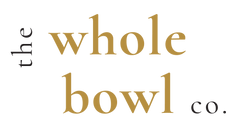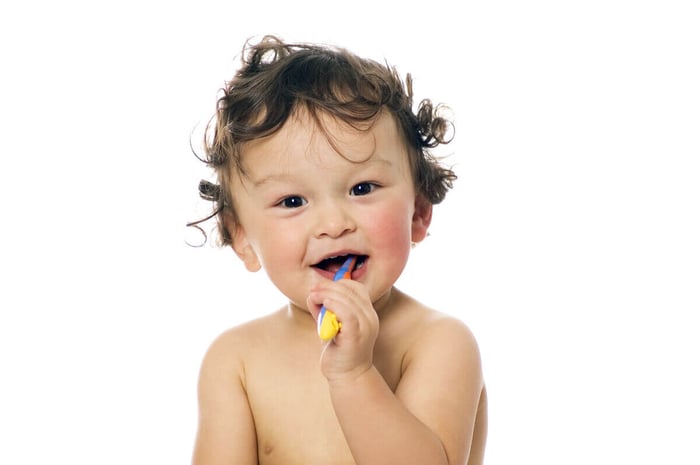Baby & Toddler Dental Care 101: What Parents Need to Know
Taking care of your baby's oral health starts long before their first tooth appears. Establishing good dental hygiene habits early helps prevent cavities, supports healthy speech development, and sets the foundation for a lifetime of healthy smiles.
This article, written by the expert team at Pigeon, provides essential tips and useful information on baby and toddler dental care, giving parents everything they need to support their little one’s oral health.
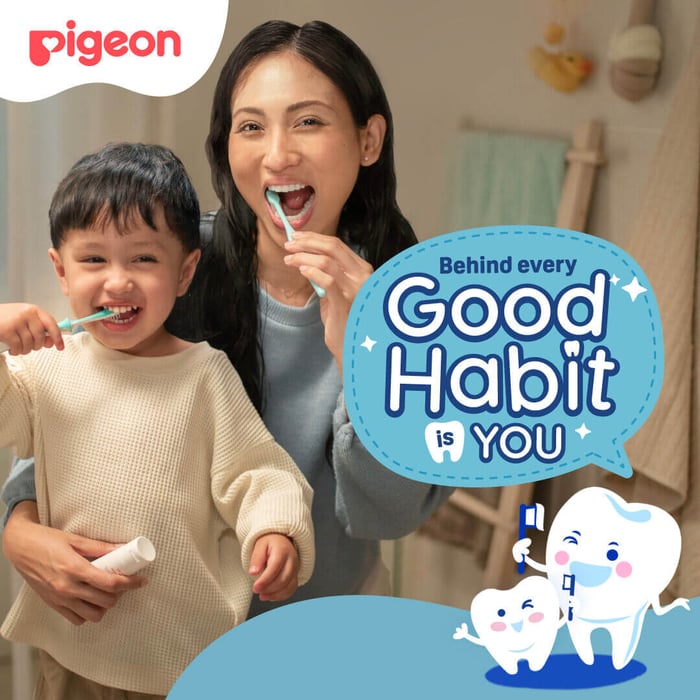
Teething Tips
Teething can be uncomfortable for babies, but there are ways to help ease their discomfort.
Offer a chilled (not frozen) teething toy or a cold washcloth – The cool sensation helps numb sore gums and provides relief.
Gently massage their gums with a clean finger – Light pressure can soothe irritation and reduce discomfort.
Offer a teether or paediatric approved dummy – A safe, age-appropriate teething toy or dummy can provide comfort and help soothe sore gums. Look for products made from soft, non-toxic materials designed specifically for teething babies to ensure they are safe and effective.
Provide safe teething-friendly foods – If your baby has started solids, chilled cucumber slices or a cold spoon can be soothing under supervision.
Keep them distracted – Extra cuddles, playtime, and engaging activities can help take their mind off the discomfort.
Maintain oral hygiene – Wipe their gums with a clean, damp cloth after feedings to keep their mouth fresh and prevent irritation.
Consult your paediatrician before using pain relief medications – If your baby seems especially uncomfortable, ask your doctor about safe pain relief options, such as teething gels or infant acetaminophen.
Every baby experiences teething differently, so try a combination of these strategies to find what works best for your little one!
Dental Guidelines by Age
Collaborating with Paediatric Dental Experts, the research team at Pigeon has developed a dental hygiene guide by age. This simple guide will help parents navigate each stage of their child's dental development, ensuring they build strong oral health habits from the very start.
Before Teeth Appear (0-6 Months):
Wipe gums gently after each feeding with a damp cloth, finger toothbrush or baby gum wipe to remove bacteria and milk residue.
This simple step prevents thrush and gets your baby used to oral care.
When the First Tooth Appears (Around 6 Months):
Continue to set the foundation of good oral hygiene. Use a silicone finger toothbrush, baby gum wipes or first toothbrush to remove any bacteria or germs.
Once babies 1-4 teeth arrive, introduce a baby training brush, which will introduce the concept of holding a toothbrush and getting used to the sensation of brushing.
Add a small amount of natural baby toothpaste to your regime. Ensure the toothpaste doesn’t contain any fluoride, so it’s safe for our little ones to swallow.
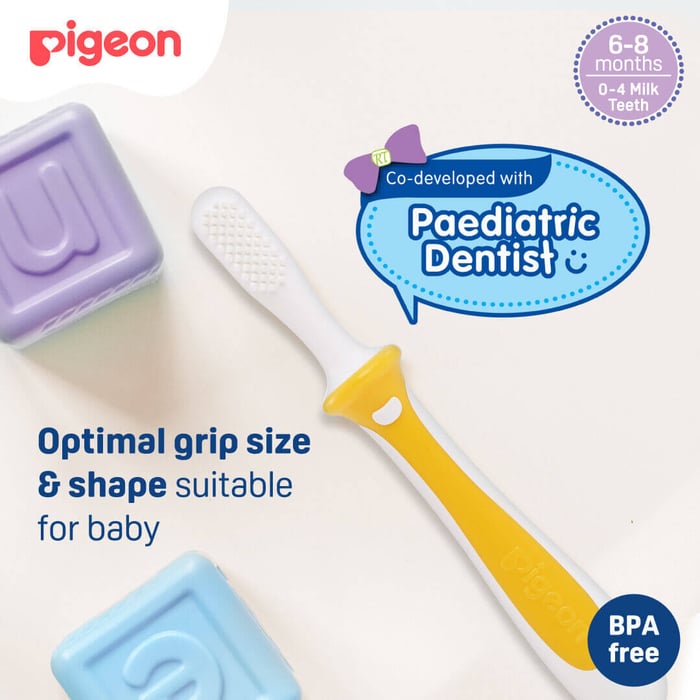
Brush time, Fun Time (8-12 Months):
Getting toddlers to brush their teeth can be a challenge, but turning it into a fun and engaging activity can help:
Let Them Choose – Give your child the freedom to pick a colourful toothbrush or a fluoride toothpaste with a fun flavour to make brushing more exciting.
Use Songs & Timers – Play The Wiggles’ Brush Your Teeth song or use a playful 2-minute timer to keep them engaged while brushing.
Brushing Buddies – Make it a family activity by brushing together, showing them that oral care is an important daily habit.
Create a Reward System – A sticker chart or small rewards for consistent brushing can help reinforce good habits.
By making brushing enjoyable, you’ll help your little one develop a positive routine that lasts a lifetime!
Ensure to upgrade your toddlers toothbrush as they become more independent with brushing.
Select a training toothbrush with longer elastomer bristles for gentle cleaning of gums and teeth, and an ergonomic design that ensures a comfortable grip for little hands.
Opt for a toothbrush with a safety shield to prevent choking.
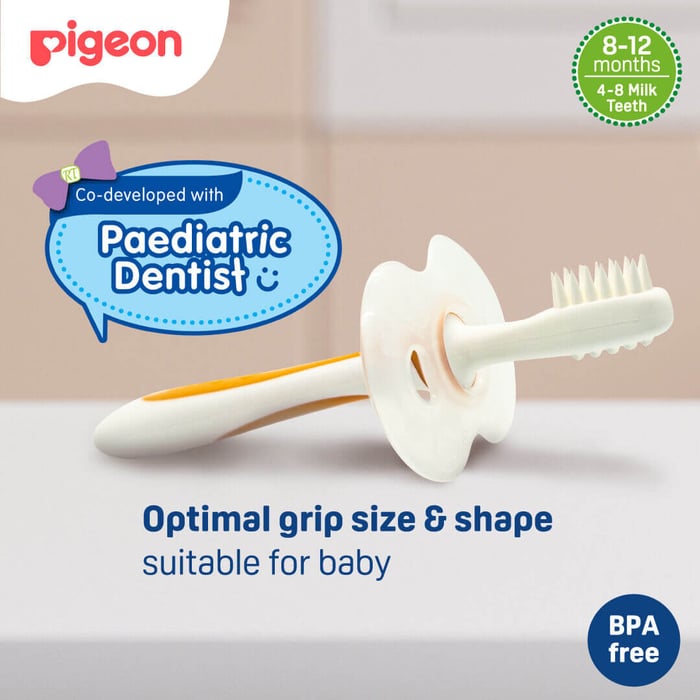
Their First ‘Real’ Toothbrush (12+ Months):
As your child reaches their first birthday, it’s time to introduce a toothbrush designed for more independent brushing. Look for a soft-bristled brush with a small head to fit their growing mouth and an easy-to-hold handle for better control. At this stage, you can begin using a rice-sized amount of fluoride toothpaste to protect their teeth from cavities.
Encourage your toddler to practice brushing on their own while you assist to ensure a thorough clean. Making brushing a fun and consistent part of their routine will help them develop lifelong healthy habits!
Pigeon’s Training Brush 3 offers low foaming (or ‘bubbles’ to make it fun) for an easy rinse.
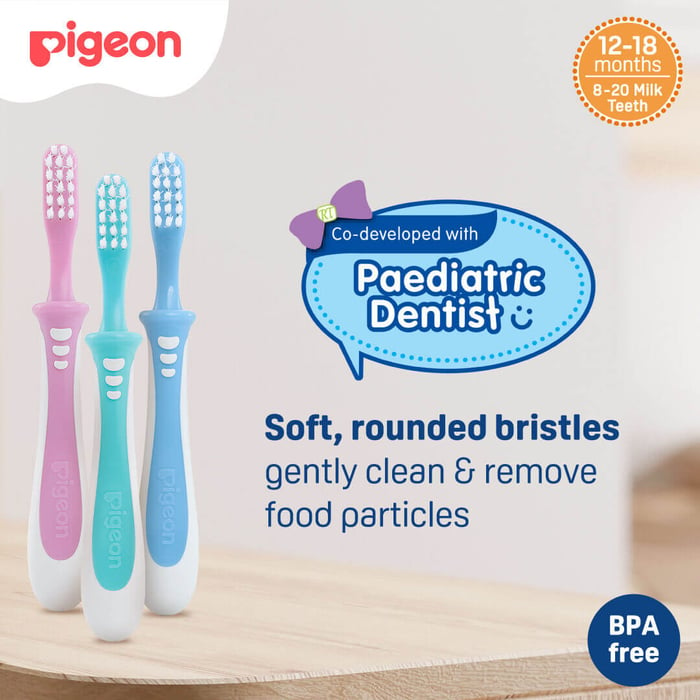
The Dental Journey Continues (18+ Months):
By 18 months, your child is becoming more independent, making this a great time to reinforce good brushing habits. At this stage, they should be using a soft-bristled toothbrush with a small head and a pea-sized amount of fluoride toothpaste.
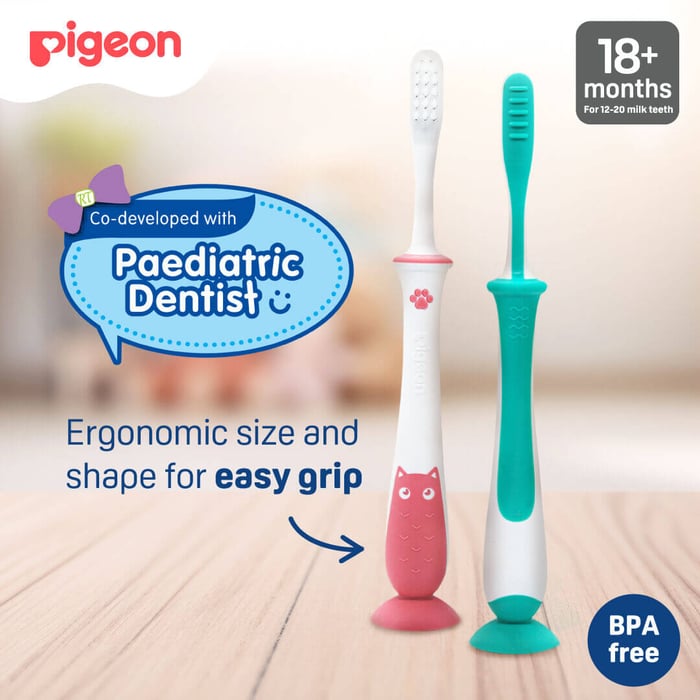
First Dentist Visit: When & Why?
Many parents wonder when to schedule their child’s first dental visit. It’s recommended to book an appointment by their first birthday or within six months of their first tooth appearing. This helps:
Identify any early dental issues
Provide guidance on brushing, diet, and oral care routines
Make dental visits a positive experience
Your Dentist may also suggest bringing your child along during your own checkup, so they can sit and watch mum or dad get a clean bill of health.
Preventing Cavities & Tooth Decay
The Pigeon research team, working alongside Pediatric Dental Experts, shares simple tips to help prevent cavities and tooth decay from the start. Here’s how you can protect your little one’s teeth:
Avoid Sugary Drinks: Formula, juice, and even milk left on teeth can cause decay. Water is the best option for hydration.
Limit Sippy Cups: Prolonged use of bottles and sippy cups increases exposure to sugars. Introduce an open cup by age 1.
No Bedtime Bottles: Avoid letting your baby sleep with a bottle to prevent ‘bottle rot’ (early childhood cavities).
Why Choose Natural Toothpaste for Kids?
Natural toothpaste is a gentle, safe way to keep little teeth clean while making brushing a positive experience.
Safe if Swallowed – Fluoride-free, food-grade formulas ensure safety while little ones learn.
Gentle on Teeth & Gums – No harsh abrasives, just effective cleaning.
Mild, Kid-Friendly Flavor – Natural flavors make brushing enjoyable without strong minty tastes.
The Pigeon Natural Baby Toothpaste, co-developed with Pediatric Dentists, is made with 100% food-grade ingredients to safely clean baby teeth and gums. Fluoride-free and safe to swallow, it’s the perfect first toothpaste to help build healthy brushing habits!
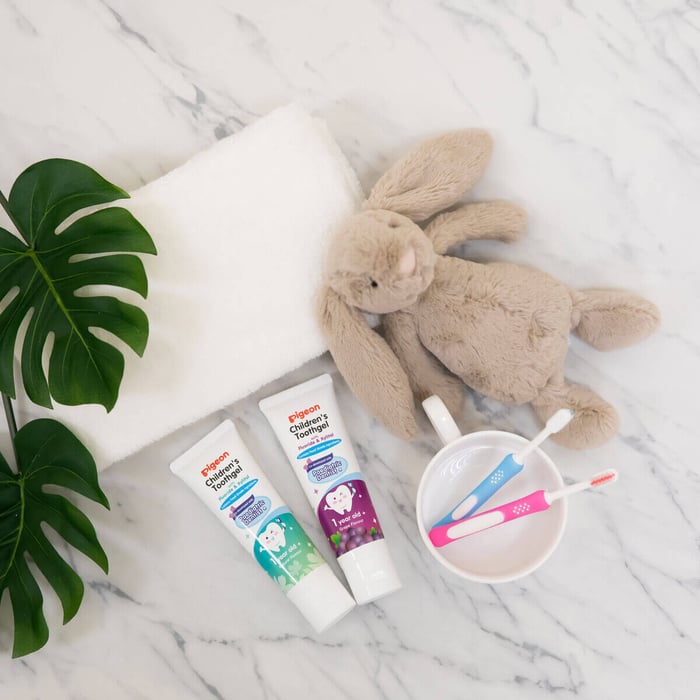
Establishing good oral hygiene habits early is key to lifelong dental health. Encourage your child to brush twice daily, introduce flossing when their teeth start touching, and maintain regular dental checkups. Making brushing a consistent and enjoyable routine will help instil positive habits, ensuring a lifetime of healthy smiles!
For more information on dental hygiene and oral care for babies and toddlers, see the Pigeon Dental Care Guide.
